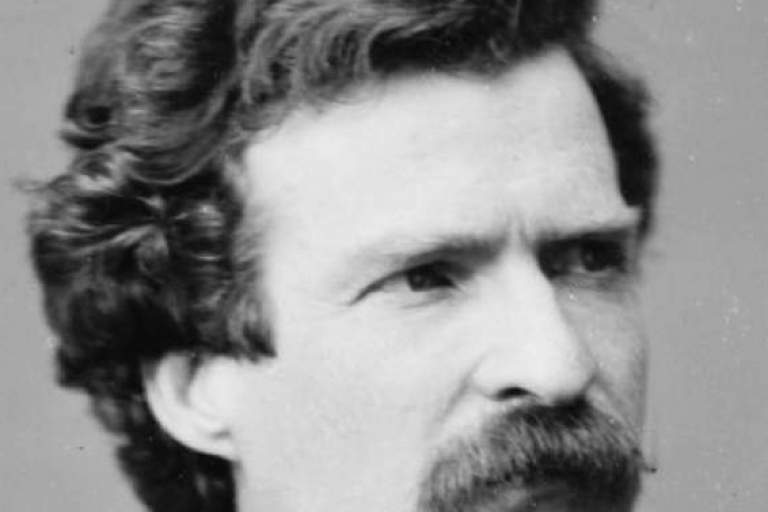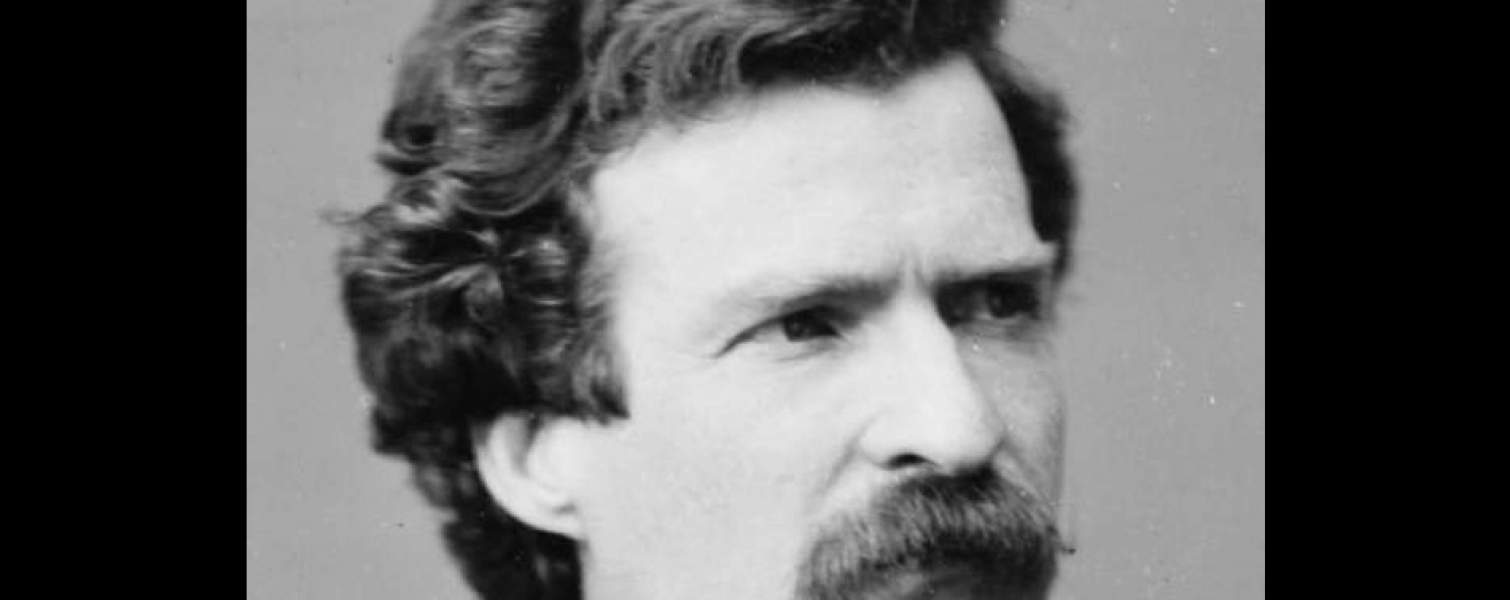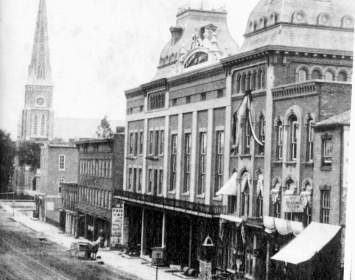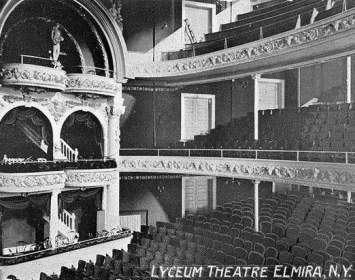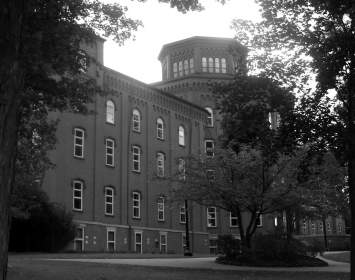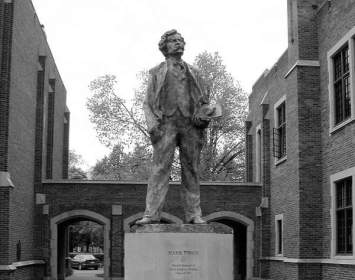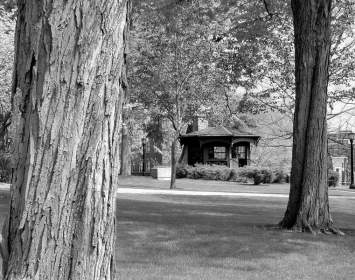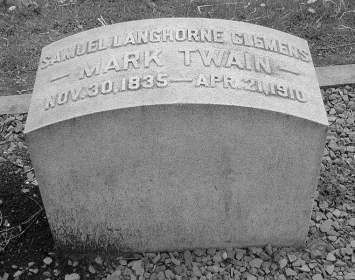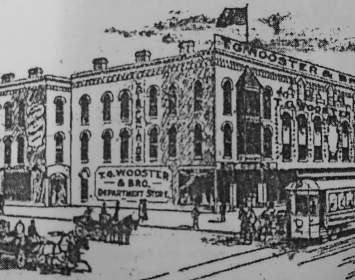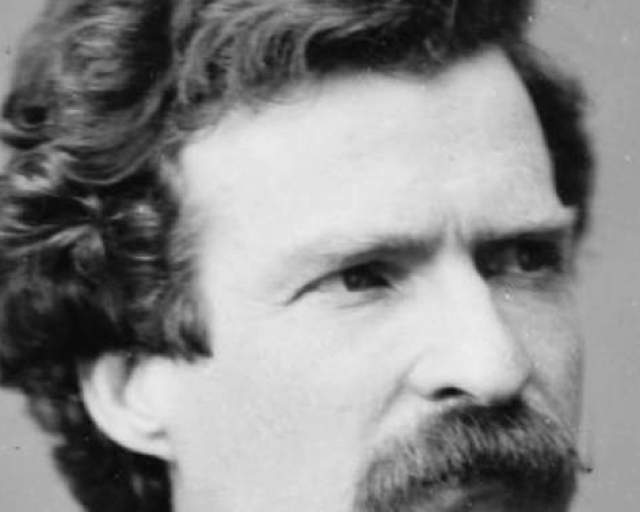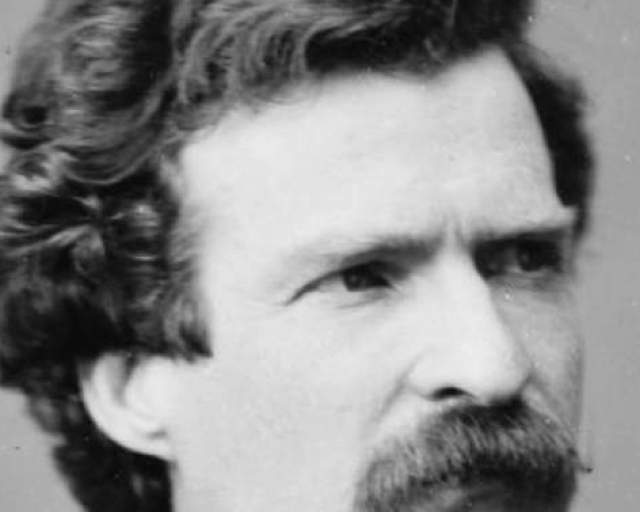
Mark Twain (pseudonym of Samuel L. Clemens, 1835–1910) is considered by many to be the most important figure in American literature. He wrote many well-known novels, such as Adventures of Huckleberry Finn and The Adventures of Tom Sawyer, plus a great many short stories and humorous essays.
However, Twain spun his humor around a dark core. His personal religious viewpoint seems to have been a heretical caricature of Calvinism: he accepted that human beings were depraved and that most were predestined to hell, but he viewed the god who had made things this way as not righteous but a malevolent trickster. According to some Twain scholars, much about Twain’s worldview can be clearly seen in his works if one keeps always in mind that Twain believes God is evil.
On encountering the Book of Mormon, Twain reacted much as journalist Obadiah Dogberry had: he found the new scripture ridiculous. Twain objected not only to its content but its clumsy faux-King James Bible style, famously dismissing the "Golden Bible" composed by self-styled Mormon "prophet" Joseph Smith as "chloroform in print."
The Concealed Freethinker. Through most of his career, Twain took care to camouflage his acid worldview. However, after 1899, when his literary success was assured and he had suffered multiple personal tragedies, Twain wrote several works in which his bitter perspective and harsh views of organized religion were plain to see. Among them were "The Man that Corrupted Hadleyburg" (1899) and What Is Man?, a misanthrophic book that argued that human choices were totally predetermined. Even harsher attacks on religion could be found in two books published after his death: The Mysterious Stranger and Letters from the Earth.
His Elmira Roots. Twain's deep ties to Elmira came through love and matrimony. On an 1867 sea voyage during which he gathered experiences that would shape his first best-seller, The Innocents Abroad, Twain befriended Charles Langdon of Elmira. When Langdon showed him a photograph of his elder sister Olivia, Twain fell in love at first sight.
Twain died on April 21, 1910; he died, as he had been born, in a year when Halley's Comet made its closest approach to the Earth. He is buried in Elmira's Woodlawn Cemetery alongside his mother, wife, son, and daughter.
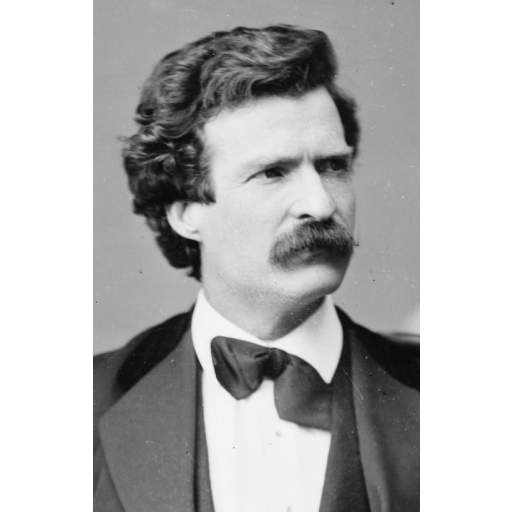
Mark Twain
Mark Twain.
Associated Historical Events
Mark Twain Gives "The American Vandal" Lecture in Elmira
November 23, 1868
Mark Twain Gives Unknown Lecture in Hornellsville
January 20, 1870
Mark Twain Gives "Artemus Ward" Lecture in Auburn
December 5, 1871
Mark Twain Gives "Artemus Ward" Lecture in Syracuse
December 6, 1871
Mid to Late Life of Mark Twain
1867–1910
